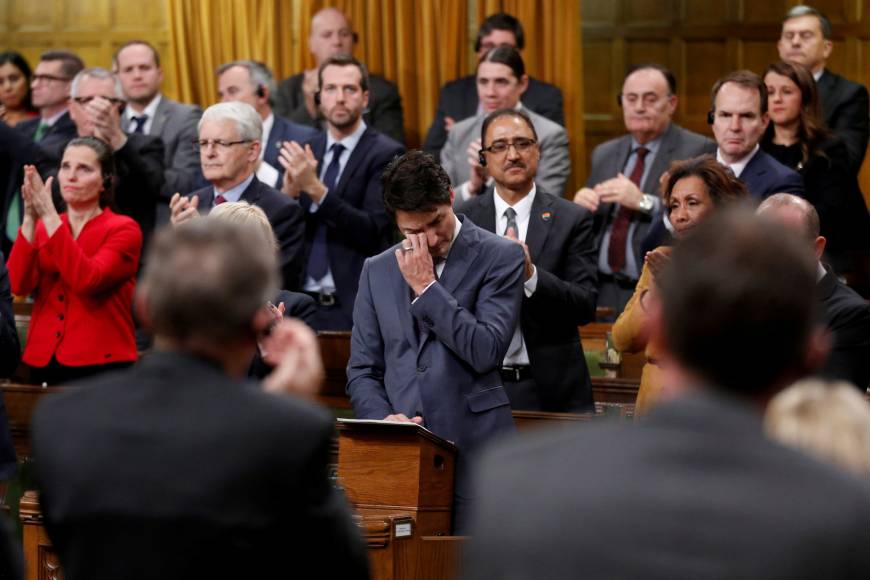Justin Trudeau wipes away tears as he apologises for Canada’s historic persecution of gay people
Canada's parliament witnessed a powerful moment in the battle for LGBT equality on Tuesday (November 28).
By Will Stroude

Justin Trudeau has issued a heartfelt apologised for the historic persecution of gay people in Canada.
The Canadian Prime Minister wiped away tears as he delivered a moving speech in parliament on Tuesday (November 28), apologising for “Canada’s role in the systemic oppression, criminalization, and violence” of LGBT+ people.
“It is with shame and sorrow and deep regret for the things we have done that I stand here today and say: We were wrong. We apologise. I am sorry. We are sorry,” he said told a packed House of Commons.
Same-sex sexual activity was legalised in Canada in 1969, but an official Cold War policy saw thousands of LGBT people continue to be fired from government and military positions in the years after decriminalisation.

Trudeau’s government has earmarked C$100m (£58m) to settle a lawsuit filed by the surviving victims of Canada’s so-called ‘gay purge’.
A further C$15m (£8.7m) has also been promised for historical memorialisation of those affected and education for future generations.
The apology came as the Canadian government introduced previously-announced legislation to pardon those convicted of historic gay sex offences.
After the historic speech, Trudeau met with members of Canada’s LGBT community, later sharing pictures of the encounters on Twitter.
For past wrongs and the unjust treatment of LGBTQ2 Canadians, we apologize and promise to keep working to fight inequality: https://t.co/ATflgn02bx pic.twitter.com/jyrG6Y1j48
— Justin Trudeau (@JustinTrudeau) November 28, 2017
“Wrapping up an emotional day with members of the LGBTQ2 community,” he wrote. “Let’s keep moving forward together.”
Wrapping up an emotional day with members of the LGBTQ2 community – let’s keep moving forward together. pic.twitter.com/02nHTCXuud
— Justin Trudeau (@JustinTrudeau) November 29, 2017
In the UK, the so-called “Turing’s Law” took effect earlier this year, allowing thousands of gay and bisexual men convicted under the UK’s historical anti-gay laws to be posthumously pardoned.
The legislation – first announced last year – pardons an estimated 49,000 men convicted of consensual same-sex relations before the partial decriminalisation of homosexuality in England and Wales in 1967.
